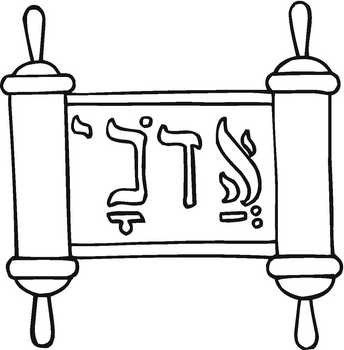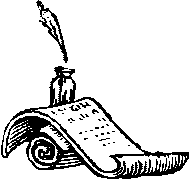 Jim's Jots and Tittles. . .
Jim's Jots and Tittles. . .
Anxiety
Philippians 4:6 says "Be anxious for nothing, but by prayer and supplications, with thanksgiving, let your requests be made known to God."
1 Peter 5:7 says, "cast all your anxiety on Him, because He cares for you."
The word translated "anxious" and "anxiety" means "to be troubled with cares." It is the same word used by Jesus in Matthew 6:34 where He said do not be anxious for tomorrow. Literally, the word translated "anxious" means "to let the mind be in parts." Have you not noticed that at times one cannot concentrate when one is anxious about so many different things?
In the Sermon on the Mount, Jesus speaks about being anxious about one's height, about clothing, and what we shall eat or drink. Jesus' solution is to seek first His kingdom and righteousness and let these other things take care of themselves.
In 2 Corinthians 12:7-8 the apostle Paul became anxious over his thorn in the flesh. He was so anxious over it that he entreated the Lord three times that it might depart from him. Paul looked at this as a weakness. The time he was using to ask God to remove it could have been used to do the work that God intended him to do. Truly, his mind was in parts and he could not concentrate upon God's will. God's reply was, "My grace is sufficient for you, for my power is perfected in weakness." And when Paul concentrated on God's power instead of what he considered a weakness, he became strong. In verse 10 Paul says, "therefore I am well content with weakness, with insults, with distresses, with persecutions, with difficulties for Christ's sake; for when I am weak, then I am strong." His mind was then not in parts--it was totally directed to serving God, and he no longer wasted time that belonged to the Lord.
As we noted in the beginning, God has given us a remedy for anxiety. All we have to do is not doubt His word and turn our anxieties over to Him sos we can concentrate on seeking first the Kingdom of God and His righteousness.
Fanny Crosby wrote at least 8,000 hymns. If she had divided her mind into parts, always being anxious about her weakness, she would not have written a single hymn. She was blinded as an infant. Her father died while she was a small child. Her only child died in infancy. Her husband died after 25 years of marriage. She never remarried.
At the age of eight she wrote a poem expressing her determination not to be anxious about her weaknesses:
To weep and sigh because I'm blind,
I cannot, and I won't.
Oh what a happy soul am I,
Although I cannot see.
I am resolved that in this world
Contented I will be.
How many blessings I enjoy
That other people don't
She, like the apostle Paul, found that when she was weak, she was strong. Her hymn Blessed Assurance expresses that strength.
In Philippians 4:6 Paul said remove your anxiety by prayer and supplications, with thanksgiving. When we are anxious and our mind is in parts, we fail to see the blessings so we can rejoice and be thankful.
After the apostle learned this, though he was in prison for preaching Christ, he could write to the Philippians, "Rejoice in the Lord always; again I say, rejoice.
—Jim Hunt

